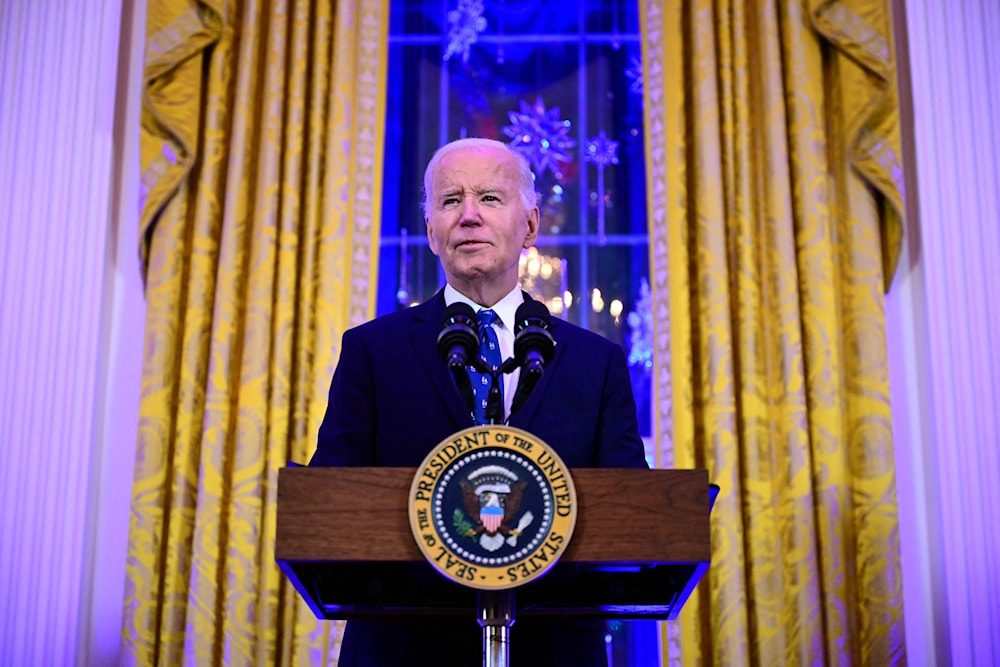Western allies say Biden's choices cost Ukraine's victory: Bloomberg
Some officials argue that regardless of whether Biden or Donald Trump is in office, the outcome for Ukraine is unlikely to change significantly.
-

US President Joe Biden speaks during a Hanukkah holiday reception in the East Room of the White House on December 16, 2024, in Washington, DC (AFP)
With just a month remaining in office, President Joe Biden's administration is concentrating its remaining resources on providing military aid to Ukraine and imposing further sanctions against Russia, Bloomberg reported on Friday.
However, officials in Ukraine and allied capitals deemed these efforts insufficient and belated. They believe that regardless of Biden's actions in his final weeks, Ukraine is likely headed toward a difficult resolution that could see Ukrainian President Volodymyr Zelensky leaving swathes of territory in a state of uncertainty in exchange for security guarantees that fall short of NATO membership—a goal he has long pursued.
These outcomes, the officials argue, stem largely from decisions Biden made, or failed to make, over the past two years. Despite the US providing over $90 billion in aid and arms to Ukraine, some allies are frustrated with Biden’s hesitation to supply more advanced weaponry at critical moments during the war with Russia, the report indicated.
It recalled that in late 2022, Ukrainian forces had Russian President Vladimir Putin on the defensive, and Zelensky urged Biden for more arms to capitalize on this advantage. Biden, however, hesitated, reportedly concerned about the potential for escalation and the risk of Russia deploying its nuclear arsenal, according to National Security Advisor Jake Sullivan.
"His [Biden's] approach was often too cautious and too hesitant, holding back on delivering the decisive support needed to tip the balance," former UK Defense Secretary Grant Shapps indicated in an interview.
Other US officials, speaking anonymously, have expressed frustration with some European governments for their slow response to the launch of the Russian operation in Ukraine and their reluctance to send arms or enforce tougher sanctions.
Some officials argue that regardless of whether Biden or Donald Trump is in office, the outcome for Ukraine is unlikely to change significantly. Trump has called for an immediate ceasefire, with his advisors indicating any deal would likely involve Ukraine freezing territorial lines and shelving its NATO aspirations.
The underlying frustration among officials on both sides of the Atlantic is the continued reliance on US leadership within NATO. Decisions made in the White House will ultimately shape the outcome of the war in Ukraine, Bloomberg pointed out.
One official mentioned that as a Cold War veteran, Biden was particularly cautious about the risks of nuclear escalation, adding that concerns about provoking Russia often led to US reluctance to act decisively, and allies like Germany shared similar apprehensions.
According to two senior European officials, the main issue was that Biden’s strategy focused on preventing Ukraine’s defeat rather than charting a clear path to victory. This approach locked Ukraine into a prolonged, bloody conflict, costing tens of thousands of lives, the officials pointed out.
Read more: European confusion clouds the Ukraine post-war security plan

 3 Min Read
3 Min Read









